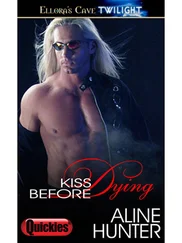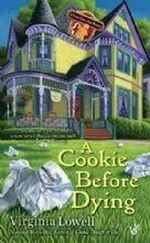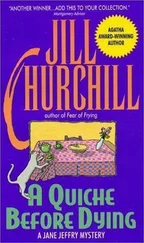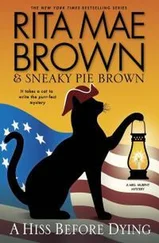He brought his chair into more perfect alignment with the desk, as if be were preparing for a long campaign.
The door opened and a pale efficient-looking woman stepped into the room. The Dean nodded at her and then leaned back in his chair and stared at the wall beyond Ellen's head, mapping his strategy. Several moments passed before he spoke. "Get the program card of Kingship, Dorothy, fall semester, nineteen forty-nine. See which English section she was in and get the enrollment list for that section. Bring me the folders of all the male students whose names appear on the list" He looked at the secretary. "Got that?"
"Yes, sir."
He made her repeat the instructions. "Fine," he said. She went out. "On the double," he said to the closed door. He turned back to Ellen and smiled complacently. She returned the smile.
By degrees the air of military efficiency faded, giving way to one of avuncular solicitude. The Dean leaned forward, his fingers softly clustered on the desk. "Surely you haven't come to Blue River solely for this purpose," he said. "I'm visiting friends."
"Ahh."
Ellen opened her handbag. "May I smoke?"
"By all means." He pushed a crystal ashtray to her side of the desk. "I smoke myself," he admitted graciously. Ellen offered him a cigarette, but he demurred. She lit hers with a match drawn from a white folder on which Ellen Kingship was printed in copper letters.
The Dean regarded the matchbook thoughtfully. "Your conscientiousness in financial matters is admirable," he said, smiling. "If only everyone we dealt with were similarly conscientious." He examined a bronze letter opener. "We are at present beginning the construction of a new gymnasium and fieldhouse. Several people who pledged contributions have failed to live up to their words." Ellen shook her head sympathetically, "Perhaps your father would be interested in making a contrubiton," the Dean speculated. "A memorial to your sister..."
'I'll be glad to mention it to him."
"Would you? I would certainly appreciate that" He replaced tide letter opener. "Such contributions are tax-deductible," he added.
A few minutes later the secretary entered with a stack of Manila folders in her arm. She set them before the Dean. "English fifty-one," she said, "section six. Seventeen male students."
"Fine," said the Dean. As the secretary left he straightened his chair and rubbed his hands, the military man once more. He opened the top folder and leafed through its contents until he came to an application form. There was a photograph pasted in the corner of it "Dark hair," he said, and put the folder on his left.
When he had gone through all of them, there were two uneven piles. Twelve with dark hair and five with light," the Dean said.
Ellen leaned forward. "Dorothy once told me he was handsome..."
The Dean drew the pile of five folders to the center of his desk blotter and opened the first one. "George Speiser," he said thoughtfully. "I doubt if you'd call Mr. Speiser handsome." He lifted out the application form and turned it towards Ellen. The face in the photograph was a chinless, gimlet-eyed teen-ager. She shook her head.
The second was an emaciated young man with thick eyeglasses.
The third was fifty-three years old and his hair was white, not blond.
Ellen's hands were damp on her purse. The Dean opened the fourth folder. "Gordon Gant," he said. "Does that sound like the name?" He turned the application form towards her.
He was blond and unarguably handsome; light eyes under full brows, a long firm jaw and a cavalier grin. "I think so..." she said. "Yes, I think he..."
"Or could it be Dwight Powell?" the Dean asked, displaying the fifth application form in his other hand.
The fifth photograph showed a square-jawed, serious-looking young man, with a cleft chin and pale-toned eyes.
"Which name sounds familiar?" the Dean asked.
Ellen looked impotently from one picture to the other.
They were both blond; they were both blue-eyed; they were both handsome.
She came out of the Administration Building and stood at the head of the stone steps surveying the campus, dull gray under a clouded sky. Her purse was in one hand, a slip of paper from the Dean's memo paid in the other.
Two... It would slow her up a little, that's all. It should be simple to find out which was the one... and then she would watch him, even meet him perhaps-though not as Ellen Kingship. Watch for the darting eye, the guarded answer. Murder must leave marks. (It was murder. It must have been murder.)
She was getting ahead of herself. She looked at the paper in her hand: Gordon C. Gant 1312 West 26th Street Dwight Powell 1520 West 35th Street Her lunch, eaten in a small restaurant across the street from the campus, was a hasty mechanical affair, her mind racing with swift thoughts. How to begin? Ask a few discreet questions of their Mends? But where do you start? Follow each men, learn the identity of his friends, meet them, find the ones who had known him last year? Time, time, time... If she remained in Blue River too long, Bud might call her father. Her fingers tapped impatiently. Who would be sure to know about Gordon Gant and Dwight Powell? Their families. Or if they were from out of town, a landlady or a roommate. It would be impetuous to go straight to the center of things, to the people nearest them, but still, no time would be wasted... She bit her lower lip, her fingers still tapping.
After a minute she put down her half finished cup of coffee, rose from the table and threaded her way to the phone booth. Hesitantly she raffled the pages of the thin Blue River book. There was no Gant at all, no Powell on 35th Street That meant they either had no phones, which seemed unlikely, or they were living with families other than their own.
She called Information and obtained the number of the telephone at 1312 West 26th Street; 2-2014: "Hello?" The voice was a woman's; dry, middle-aged.
"Hello." Ellen swallowed. "Is Gordon Gant there?"
A pause. "Who's calling?"
"A friend of his. Is he there?"
"No." Snapped out sharply.
"Who is this?"
"His landlady."
"When do you expect him back?"
"Won't be back till late tonight." The woman's voice was quick with annoyance. There was a click as she hung up.
Ellen looked at the dead receiver and placed it on the hook. When she got back to her table the coffee was cold.
He would be gone all day. Go there?... A single conversation with the landlady might establish that Gant was the one who had gone with Dorothy. Or, by elimination, it might prove that Powell was the one. Speak to the landlady... but under what pretext?
Why, any pretext! Provided the woman believed it, what harm could the wildest story do?-even if its falseness were completely obvious to Gant when the landlady reported it. Either he wasn't the man, in which case let him puzzle over a mysterious questioner pretending to be a friend or a relative, or he was the man, in which case: A) He had not killed Dorothy-again let him puzzle over a mysterious questioner, or: B) He had killed Dorothy-and the story of a girl seeking information about him would make him uneasy. Yet his uneasiness would not interfere with her plans, for should she later make his acquaintance, he would have no reason to associate her with the girl who had questioned his landlady. Uneasiness on his part might even be a help to her, making him tense, more likely to betray himself. Why, he might even decide to take no chances and leave town-and that would be all she'd need to convince the police that there was a sound basis to her suspicions. They would investigate, find the proof...
Go straight to the center of things. Impetuous? When you thought about it, it was really the most logical thing to do.
She looked at her watch. Five past one. Her visit shouldn't be made too soon after the telephone call or the landlady might connect the two and become suspicious. Forcing herself to sit back in the chair, Ellen caught the waitress' eye and ordered another cup of coffee.
Читать дальше










